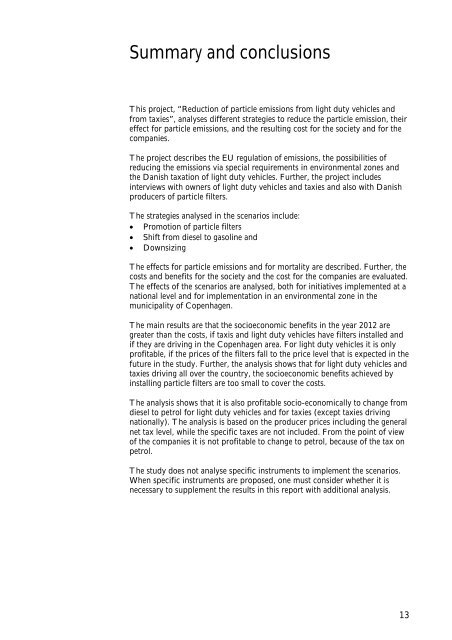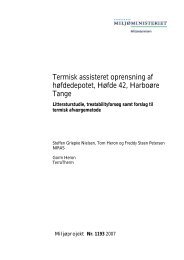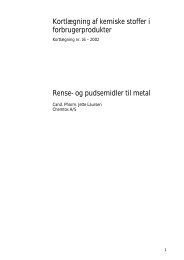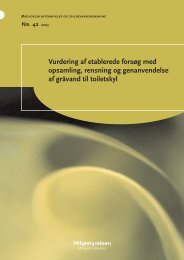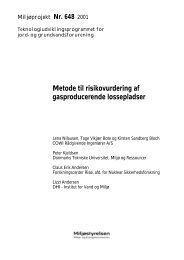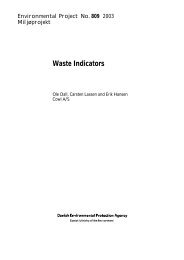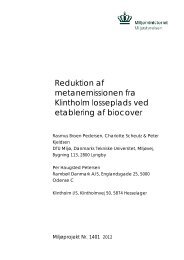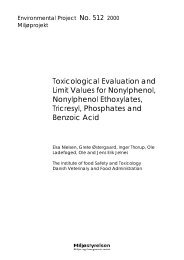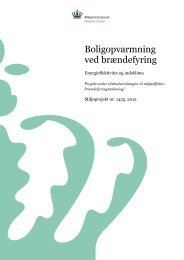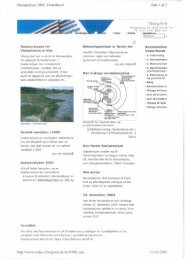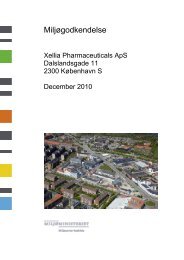Spørgeramme til taxivognmænd. - Miljøstyrelsen
Spørgeramme til taxivognmænd. - Miljøstyrelsen
Spørgeramme til taxivognmænd. - Miljøstyrelsen
Create successful ePaper yourself
Turn your PDF publications into a flip-book with our unique Google optimized e-Paper software.
Summary and conclusions<br />
This project, “Reduction of particle emissions from light duty vehicles and<br />
from taxies”, analyses different strategies to reduce the particle emission, their<br />
effect for particle emissions, and the resulting cost for the society and for the<br />
companies.<br />
The project describes the EU regulation of emissions, the possibilities of<br />
reducing the emissions via special requirements in environmental zones and<br />
the Danish taxation of light duty vehicles. Further, the project includes<br />
interviews with owners of light duty vehicles and taxies and also with Danish<br />
producers of particle filters.<br />
The strategies analysed in the scenarios include:<br />
• Promotion of particle filters<br />
• Shift from diesel to gasoline and<br />
• Downsizing<br />
The effects for particle emissions and for mortality are described. Further, the<br />
costs and benefits for the society and the cost for the companies are evaluated.<br />
The effects of the scenarios are analysed, both for initiatives implemented at a<br />
national level and for implementation in an environmental zone in the<br />
municipality of Copenhagen.<br />
The main results are that the socioeconomic benefits in the year 2012 are<br />
greater than the costs, if taxis and light duty vehicles have filters installed and<br />
if they are driving in the Copenhagen area. For light duty vehicles it is only<br />
profitable, if the prices of the filters fall to the price level that is expected in the<br />
future in the study. Further, the analysis shows that for light duty vehicles and<br />
taxies driving all over the country, the socioeconomic benefits achieved by<br />
installing particle filters are too small to cover the costs.<br />
The analysis shows that it is also profitable socio-economically to change from<br />
diesel to petrol for light duty vehicles and for taxies (except taxies driving<br />
nationally). The analysis is based on the producer prices including the general<br />
net tax level, while the specific taxes are not included. From the point of view<br />
of the companies it is not profitable to change to petrol, because of the tax on<br />
petrol.<br />
The study does not analyse specific instruments to implement the scenarios.<br />
When specific instruments are proposed, one must consider whether it is<br />
necessary to supplement the results in this report with additional analysis.<br />
13


